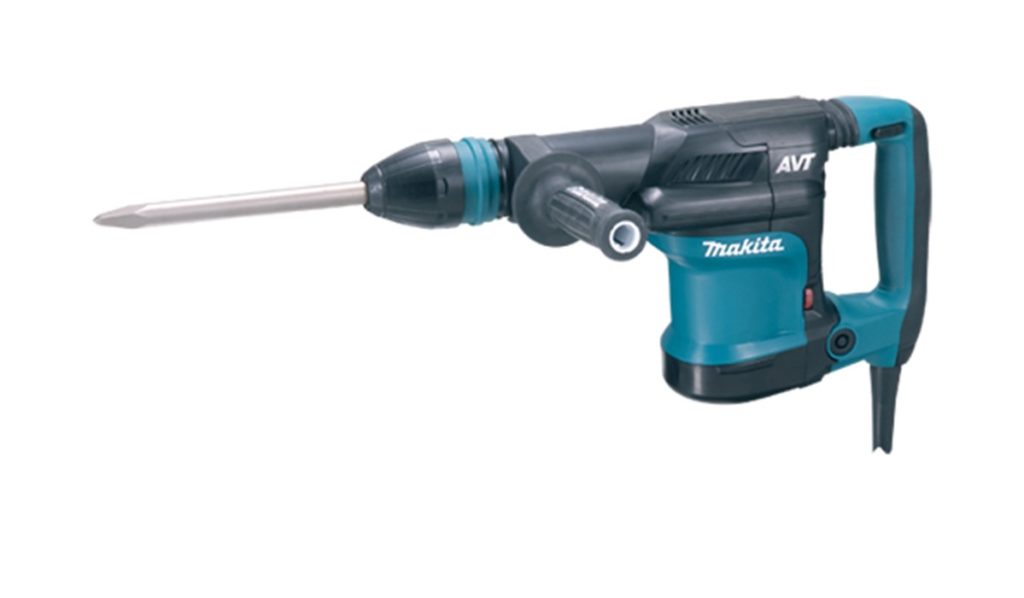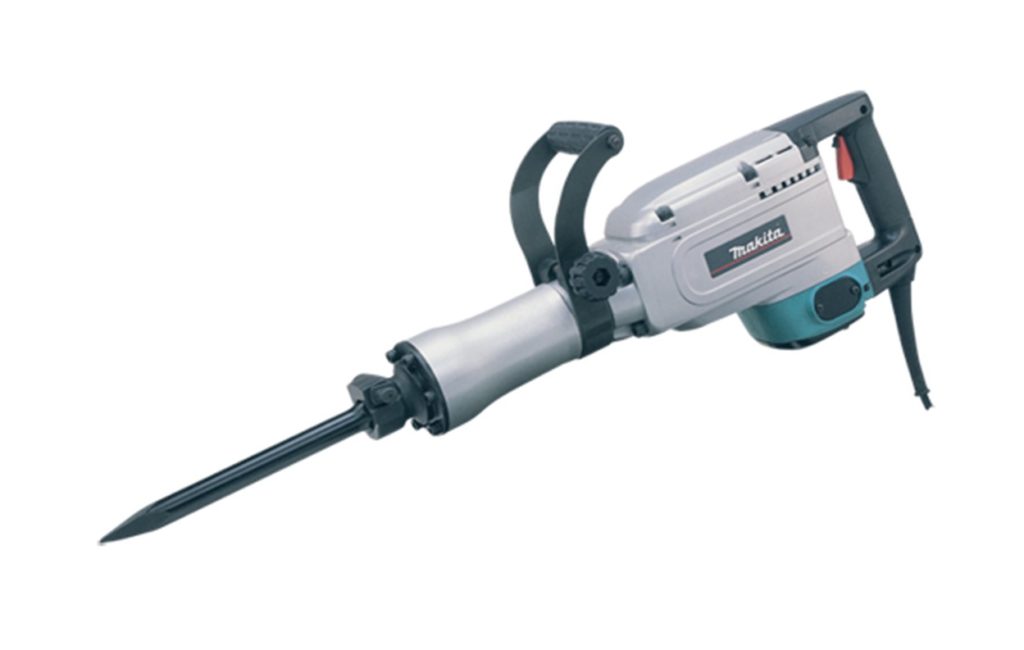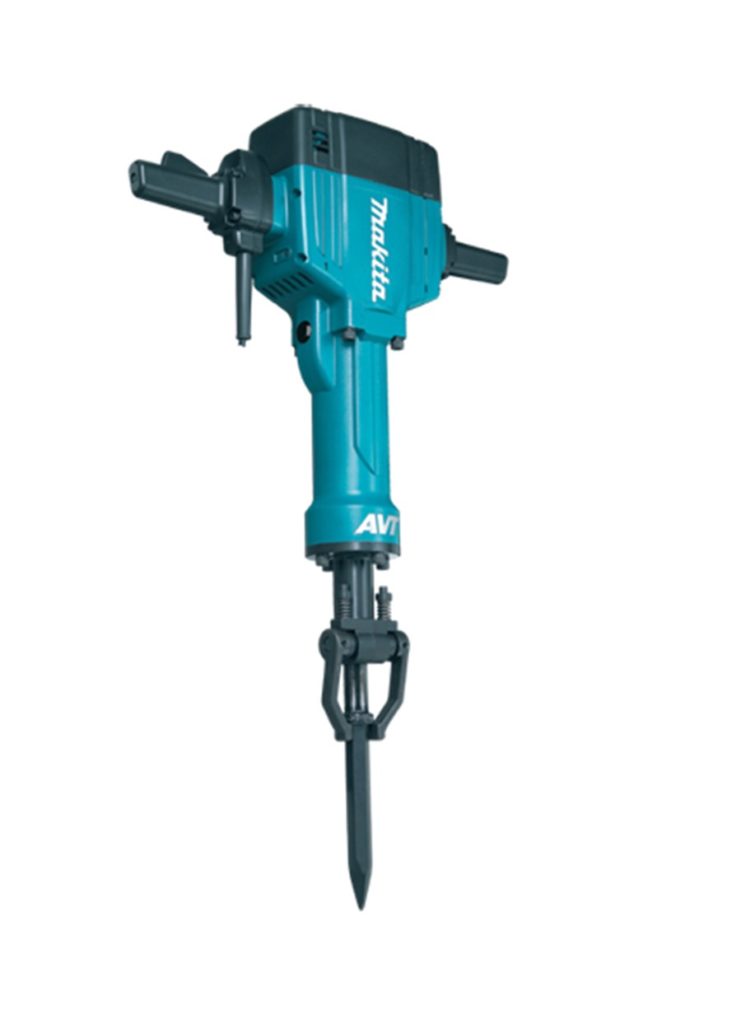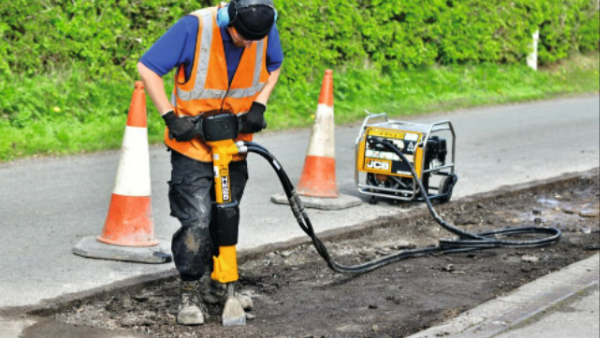Concrete Removal- Which Concrete Breaker to use?
When it comes to demolition, concrete breakers are critical pieces of equipment to get the job done. Concrete breakers have developed massively since its first design. Originally, breakers were oversized machines that had to be operated by a strong individual. However, since their first creation, concrete breakers have become far more manageable and safer. Nowadays a concrete breaker has more advanced anti-vibration systems built inside them. This allows users to be far more productive for longer periods without causing long-term damage such as HAVS.
In today’s market, there are many different concrete breakers to hire. Therefore, to ensure that you get the right tool for the job, we have put together this in-depth article to find the right match for your project.
Types of concrete breaker
There are several types of electric, petrol and hydraulic concrete breakers available on the market. These are better known as:
Power chisel

For light work such as removing render plaster and floor tiles, a power chisel is an ideal tool for the job. Power chisels are equipped with variable speed control, allowing you to undertake detailed work rather than a large demolition. These tools require electricity to operate their motor, which produces an internal pistol to pound, creating a hammering force.
Rotary hammer

A power tool that can perform heavy-duty tasks such as drilling and chiselling hard materials. Unlike SDS drills, rotary hammers have a hammer only function with no rotation. The pounding action created is caused by a piston driven by the crankshaft inside the equipment. Most of these drills are electrically powered, therefore you will require access to power to operate. Rotary hammers are multi purpose, allowing you to switch between drill or hammer only operations. These are ideal for concrete breaking depths of up to 40mm.
Demolition hammer

These larger hammers are designed to break through concrete up to depths of 125mm. Generally powered by electricity, but are ideal for both indoor and outdoor work. Similar to other hammer designs, the internal hammer is forced up and down within the tool by its motor. The hammer speed of a heavy-duty concrete breakers can be adjusted via a dial found on the machine’s body. Demolition hammers can weigh around 15kg, making them slightly less manoeuvrable than smaller concrete breakers.
Heavy-duty breakers

The most powerful breakers are powered by either petrol or electricity depending on their design. Mostly used for breaking road surfaces, pathways, driveways up to 300mm in depth, these breakers are some of the largest handheld breakers available on the market. Heavy-duty breakers have a fixed output speed when in operation, which is a lot higher than others than smaller models. It is important to note that heavy-duty breakers weigh more than 30kg, making them harder to manoeuvre and operate.
Hydraulic breakers


Unlike other breakers, hydraulic breakers operate off an excavator or a fuel-powered generator for larger-scale projects. Hydraulic pistons exert pressure into the head of the breaker, generating the force to break through all types of dense rock. These types of breakers are used by the most skilled of operators on demolition sites.
Factors you need to consider before choosing your concrete breaker
Before choosing a breaker to hire, you need to make sure that you are aware of the following factors:
What are you breaking through?
What is the thickness of concrete that you are breaking through? Not all concrete breakers are suitable to break through driveways and patios. Choosing the correct breaker can save you time, money and mechanical breakdown costs. If you are not too sure what size breaker you require, then always consult a professional.
Does it need to be versatile?
Do you want the equipment to do more than remove concrete? Having a multi-purpose tool can save you from hiring an additional tools. Some concrete breakers also offer variable output speeds to tackle the toughest and most delicate of work.
Power supply
Where is your project taking place? Do you require power for your breaker? Some breakers are petrol-powered, ideal for outdoor work. However, if you are working indoors, it is important to know if you have access to power to operate your concrete breaker.
Weight
Weight can be a big factor when it comes to choosing the right breaker. Breakers can vary from 5kg to more than 25kg depending on their output and power. If your project involves lifting your breaker to work through a wall, for example, you will want to choose one that you can handle safely.
Using a breaker that is too heavy to handle can cause injury to the user.
Understanding the specifications of concrete breakers
At this point, you should have a good idea of which concrete breaker would best suit you’re the work that you intend to undertake. During your search, you may come across lots of building jargon that may be hard to decrypt. So, to help you understand a bit more, here are the main things you should focus on:
Impact rate
Impact rate measures how many times the chisel hits the surface you are working on in a minute. This is measured in beats per mins (BPM) or revolutions per minute (RPM). The higher the BPM or RPM, the quicker your concrete breaker will work through the material. Even though you may choose a breaker with a higher RPM, it doesn’t mean it will break through denser materials.
Impact force
The impact force of a concrete breaker is measured in Joules (J). The higher the joules level, the denser the material you will be able to break. This, combined with a high impact rate, makes for a concrete breaker powerful enough to work through most surfaces.
Anti Vibration Technology (AVT)
By law, all vibrating tools must have some level of anti-vibration system built into them. AVTs allow workers to work safer for longer and not cause any lasting injuries. To protect yourself or other employees, it is always worth choosing the highest quality equipment that is tested regularly.
Types of chisel for a concrete breaker
There are 3 main types of chisels that are available for a concrete breaker, all of which can be interchangeable during operation.
Pointed chisel
Pointed chisels are used in a concrete breaker to apply as much force as possible through a small single point. This is the most common chisel you will expect to see being used with a concrete breaker, as they are ideal for the densest of surfaces.
Flat chisel
Flat chisels are perfect to use up against a flat edge or a straight line cut. You can use a flat chisel to remove tiles from a wall or floor, as well as breaking concrete slabs. Using a flat chisel on dense concrete could be unproductive. However, if you are required to do so, always opt for a smaller flat chisel that can generate more focused force.
Are you looking for a concrete breaker to hire for your next project?
WHC Hire Services has been supplying the highest quality concrete breakers to customers, contractors and businesses (no matter their size) for over 20 years. All our concrete breakers are regularly tested for their vibration exposure levels to ensure user safety whilst in operation. Whether you are looking to hire a single item or several tools, we can guarantee you will receive your equipment in perfect working condition. With depots in Tewkesbury, Worcester and the Cotswolds, we are available and on hand when you need us.
Click here to view the concrete breakers we offer or call, 01684377977 to discuss your project with one of our team.

